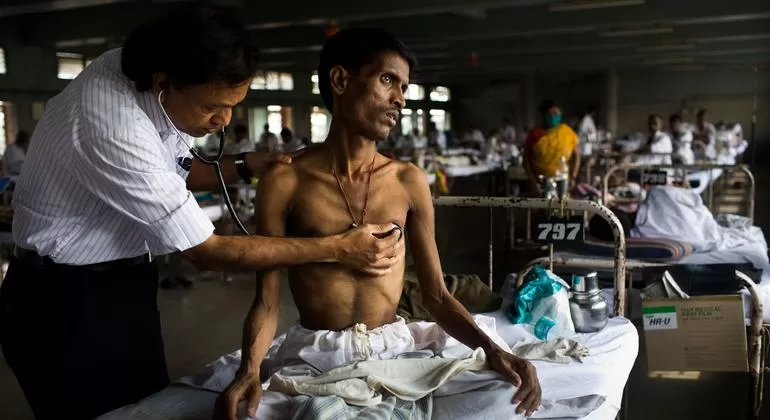India, April 16, 2024 (IANS): With India intensifying efforts to eradicate tuberculosis (TB) by 2025, a groundbreaking study has shed light on the pivotal role of whole-genome sequencing (WGS) in identifying drug-resistant TB cases early, potentially revolutionizing treatment outcomes.
Tuberculosis remains a formidable global health challenge, claiming millions of lives annually, with India bearing a significant burden. In 2020 alone, over 2.95 million active TB cases were recorded in India, including 135,000 cases classified as multidrug-resistant TB (MDR-TB).
The recent study, conducted by HaystackAnalytics, a startup affiliated with IIT-Bombay, in collaboration with Dr. D.Y. Patil Medical College, Pune, analyzed data from 600 patients grappling with drug-resistant TB in India. The findings underscored the prevalence of pre-extensively drug-resistant TB (pre-XDR-TB) in 50.83% of cases, alongside 15.5% with MDR-TB, revealing a pressing need for advanced diagnostic strategies.
Notably, WGS uncovered resistance not only to rifampicin and isoniazid but also to fluoroquinolones, crucial antibiotics in TB management. Dr. Anirvan Chatterjee, CEO and Co-founder of HaystackAnalytics, emphasized the transformative potential of WGS in TB diagnosis, envisioning its integration as a primary screening tool globally.
“I believe, going forward, whole-genome sequencing might become the first among many tests, which will be prescribed to all TB patients, not only in India, everywhere else in the world,” Dr. Chatterjee remarked.
Highlighting the demographic implications, the study revealed alarming rates of pre-XDR TB among younger populations, with 55% prevalence in individuals aged 15-35 and 67% among those under 14. Dr. Chatterjee underscored the significance of this trend, stressing its adverse impact on productivity and the heightened risk of transmission.
“In fact, there is a lot of drug resistance in the younger age group, which is of very high concern, for reasons of productivity,” he noted, emphasizing the urgent need for proactive interventions.
Moreover, WGS’s capacity to detect resistance to 18 antibiotics in a single test promises to streamline diagnostic processes, enabling prompt initiation of tailored therapies. Dr. Chatterjee emphasized the potential to curtail transmission significantly through targeted antibiotic administration, thereby curbing the incidence of new TB cases.
As India accelerates its efforts to eliminate TB, leveraging advanced technologies like WGS emerges as a critical strategy in the fight against drug-resistant strains. With its ability to identify resistance patterns swiftly and comprehensively, WGS offers a beacon of hope in the quest for a TB-free future.
The study findings underscore a paradigm shift in TB diagnosis and treatment, heralding a new era where precision medicine holds the key to overcoming one of humanity’s most.












